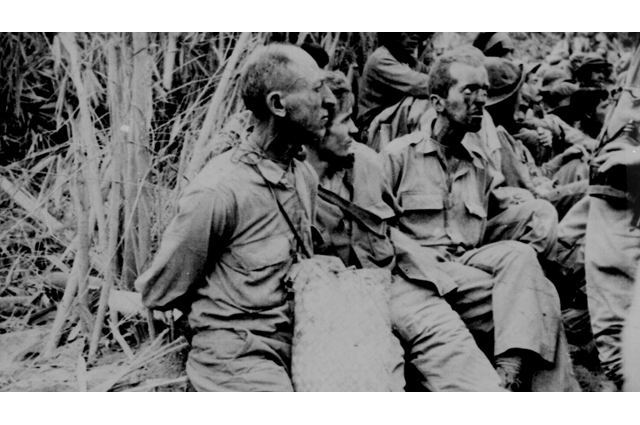“I entered the room with a heavy heart, seeking forgiveness,” —Yukio Okamoto, outside board member for Mitsubishi.
In an unprecedented and historic occasion, the Japanese firm Mitsubishi has made a touching public apology for the forced labor of American prisoners of war (POWs) during World War II.
During World War II, approximately 12,000 Americans were sent to Japan to work under forced labor conditions. This figure includes around 500 that were exploited as miners for the Mitsubishi Mining Co. (Al Jazeera).
Despite previous apologies being issued by the Japanese Government, the ceremony came as the first public apology by a Japanese company in the 70 years since the War.
At a very somber yet dignified ceremony held in Los Angeles, Mitsubishi senior executive Hikaru Kimura made a heartfelt public address to James Murphy (94)—one of only two surviving US prisoners from the period.
Mistubishi executives said they felt a “deep sense of ethical responsibility for a past tragedy.”
“For 70 years since the war ended, the prisoners of war who worked for these Japanese companies have asked for something very simple, an apology,” Murphy stated.
Mistubishi representatives admitted that these POWs suffered “harsh, severe hardships” and their treatment was described as “slavery in every way: no food, no medicine, no clothing, no sanitation.”
In his statement, Murphy went on to say “Mr. Kimura was very sincere, he was honest and it was very clear it was coming from his heart. It was so heartfelt, at least half of the room was crying. It was an extraordinary moment in history but I wish that more [prisoners] were still alive.”
This timely landmark occasion comes as the Japanese government is increasingly looking to bury its wartime misdemeanors and guilt in an effort to restore its ability to exercise more military influence internationally. This is something that has been limited until now due to the country’s post-war constitution.
According to The New York Times, Prime Minister Shinzo Abe “has devoted his career to moving Japan beyond guilt over its militarist past and toward his vision of a ‘normal country’ with a larger role in global affairs.”
—Chris Zajko
Image: U.S. POWs during the “Bataan Death March” (1942)/U.S. National Archives









